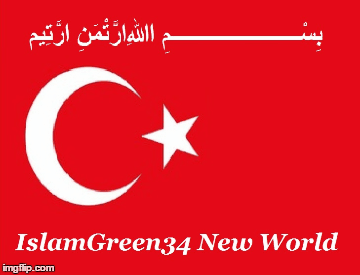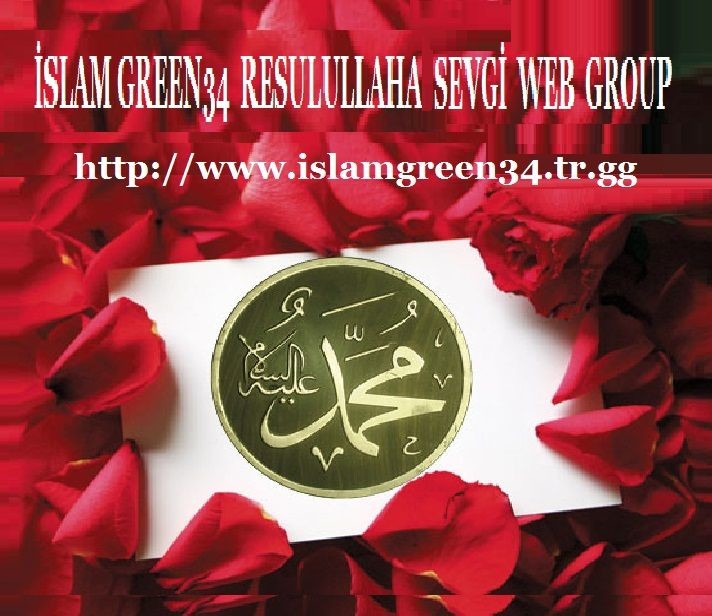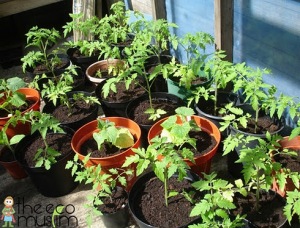NYTimes: When the Uprooted Put Down Roots
01 Feb 2012 Leave a Comment
 Khadija Musame, above right, with a customer from Somalia at the New Roots Farm stand in San Diego.
Khadija Musame, above right, with a customer from Somalia at the New Roots Farm stand in San Diego.
SAN DIEGO — At the Saturday farmer’s market in City Heights, a major portal for refugees, Khadija Musame, a Somali, arranges her freshly picked pumpkin leaves and lablab beans amid a United Nations of produce, including water spinach grown by a Cambodian refugee and amaranth, a grain harvested by Sarah Salie, who fled rebels in Liberia. Eaten with a touch of lemon by Africans, and coveted by Southeast Asians for soups, this crop is always a sell-out.
Among the regular customers at the New Roots farm stand are Congolese women in flowing dresses, Somali Muslims in headscarves, Latino men wearing broad-brimmed hats and Burundian mothers in brightly patterned textiles who walk home balancing boxes of produce on their heads.
New Roots, with 85 growers from 12 countries, is one of more than 50 community farms dedicated to refugee agriculture, an entrepreneurial movement spreading across the country. American agriculture has historically been forged by newcomers, like the Scandinavians who helped settle the Great Plains; today’s growers are more likely to be rural subsistence farmers from Africa and Asia, resettled in and around cities from New York, Burlington, Vt., and Lowell, Mass., to Minneapolis, Phoenix and San Diego.
With language and cultural hurdles, and the need to gain access to land, financing and marketing, farm ownership for refugees can be very difficult. Programs like New Roots, which provide training in soil, irrigation techniques and climate, “help refugees make the leap from community gardens to independent farms,” said Hugh Joseph, an assistant professor at the Friedman School of Nutrition at Tufts, which advises 28 “incubator” farms representing hundreds of small-scale producers.
Cameroonian peanut plants are growing at Drew Gardensin the Bronx, chronicled on the Facebook page of Angela Nogue, a refugee farmer. Near Phoenix, a successful goat meat farm and store was begun by Ibrahim Sawara Dahab, an ethnic Sudanese from Somalia. “In America, you need experience, and my experience was goats,” he said.
For full article go to NYTimes.com
:: By PATRICIA LEIGH BROWN / Published: October 9, 2011
:: Image via Sandy Huffaker for The New York Times
Connecting young Americans — of all kinds — with the outdoors
31 Jan 2012 Leave a Comment
This story originally appeared in Wilderness Magazine
“I love nature!” proclaims Halima, a 14-year-old girl shrouded in the traditional Muslim headscarf. Halima is one of a 120-plus crowd participating in a Seattle youth listening session for President Obama’s America’s Great Outdoors (AGO) initiative.
Launched in April 2010, the initiative aims to reconnect Americans to the great outdoors and engage citizens in developing a 21st century strategy to protect our natural landscape. In particular, the president asked that “special attention be given to bringing young Americans into the conversation.”
At the Seattle session, youth break into small groups to talk about the question: “What can we do to support and encourage young people’s involvement in nature and getting connected to the outdoors?” The school auditorium is abuzz with the exchange of ideas. Youth report back to the larger group that we need more outdoor education in schools, field trips to national parks, better transportation, and increased job opportunities.
Halima, who attends the Islamic School of Seattle, suggests that more role models and youth leaders are needed. She got turned on to nature through a school field trip to Olympic National Park. More
SISTERS: Saving Water An Islamic duty of care
29 Jan 2012 Leave a Comment
Arwa Aburawa looks at the very stuff of life – water – and why Muslims should be working to preserve every drop.
Imagine waking up to find that water, which normally flows freely out of your tap, had become a scarce and precious commodity. That it had become too important to use to flush the toilet or to flow down the drain as you brush your teeth- too precious to waste on that daily morning shower. Would you see water differently? Would you be using it more sparingly and showing more concern about waste? Of course you would, it would only be natural and yet a famous hadith reported by Ibn Majah states that the Prophet Muhammad r told us to not to waste water even if it is abundant. But sadly, when it is abundant we take advantage of it, we forget its vital importance to our health and survival and, ultimately, we waste it.
Water, Wudhu and Wellbeing
As the sustainer of life, water plays an important role in all cultures and faiths across the world. In Islam, however, it is held up as a sign of God’s existence and one of his greatest creations. We are reminded in the Qur’an, “We made from water every living thing,” (Al- Anbiyaa:30) and “Who has created the heavens and the earth, and Who sends you down water from the sky?”(Al -Naml:60) . The word water or Ma’ is mentioned in the Qur’an sixty times and paradise is repeatedly described as a lush garden with flowing rivers. Through our daily prayers and the purification of wudhu, water is also aligned to one of the core tenants of Islam.
Green Prophet: ‘Eco-Hijabs’ On The Rise, What Muslim Fashion Bloggers Have To Contribute
27 Jan 2012 Leave a Comment
in Uncategorized Tags: eco-hijabs, Green Muslims, Green Prophet, Zaufishan
 What is an Eco-Hijab?
What is an Eco-Hijab?
An ‘eco-hijab’ is a contemporary coined term used to describe the relationship between ecologically driven Muslims, and the Arabic word for the Muslim dress sense: hijab, meaning ‘barrier, covering or veil’. This eco-hijab fuses Muslims’ ‘green’ values with with their visual identity of modest clothing, for example organic hijabs made from bamboo.
As a lifelong eco-hijabi* I too advocate greener living by adopting the 3 R’s: Recycle, Reuse and Reduce, and upcyling my own headscarves (hijab/tichel) – more on that later! Another term I personally use is ‘eco-Muslimness’ whereby a person may not necessarily be a hardcore Muslim environmentalist, but tries to follows the Muslim principles of moderation, environmental welfare and waste-reduction.
See Green Prophet for the full article by Zaufishan.
Muzlimbuzz: Sofiah Jamil- A Green Muslim Talks Environmental Ethics
25 Jan 2012 Leave a Comment
A green activist with amazing bushy hair, Sofiah Jamil tells us about environmental ethics, how Muslims should be at the forefront of green initiatives and many more. Read on!
 Sofiah Jamil: Professionally, I am an Associate Research Fellow at the Centre for Non-Traditional Security Studies at the S. Rajaratnam School of International Studies, Nanyang Technological University. I co-lead 2 programmes in the Centre – Climate change and Environmental Security; and Energy Security. I also volunteer as a Board Member for the Young Association of Muslim Professionals. I will be pursuing a PhD next year inshaAllah at the Australian National University with the topic of muslim environmental initiatives – a case study of Indonesia. Socially, I love walking (FittFlops is the best footwear ever!), dancing, playing squash and badminton, watching rugby and arts performances… amongst other things.
Sofiah Jamil: Professionally, I am an Associate Research Fellow at the Centre for Non-Traditional Security Studies at the S. Rajaratnam School of International Studies, Nanyang Technological University. I co-lead 2 programmes in the Centre – Climate change and Environmental Security; and Energy Security. I also volunteer as a Board Member for the Young Association of Muslim Professionals. I will be pursuing a PhD next year inshaAllah at the Australian National University with the topic of muslim environmental initiatives – a case study of Indonesia. Socially, I love walking (FittFlops is the best footwear ever!), dancing, playing squash and badminton, watching rugby and arts performances… amongst other things.Sofiah: Experiences at various points of my life made me more aware about the environment. In secondary school, I was a girl guide so camping brought me closer to nature. I did my undergraduate studies in Australia, where the environmental movement and consciousness is so much more apparent than in Singapore (some students even walk barefoot to University in the summer!). More
Green Prophet: Green Muslims Top ‘Muslim 500′ List
23 Jan 2012 Leave a Comment
Green Muslims have been nominated as some of the most influential Muslim leaders of 2011
While Green Prophet works on its own top green leaders of 2011, the Royal Islamic Strategic Studies Centre had released a list of the 500 most prominent Muslims of the past year. The annual publication highlights the 500 most influential Muslims of the year- which includes several Muslim environmentalists. The Green Grand Mufti of Egypt, Sheikh Ali Goma’a as well as Fazlun Khalid, who I interviewed last yearwere both included on the list.
The Green Grand Mufti of Egypt is a progressive and influential faith leader across the world who has issued statements and fatwas regarding the environment. He has highlighted the role that faith can play in confronting the ecological crisis by providing moral ways and principles for dealing with the current environmental problems. According to Moshe Terdman, a writer at Green Prophet:
Sheikh Ali Gomaa has been outspoken on environmental sustainability. On November 2, 2009, on his speech at the Alliance of Religions and Conservation conference at Windsor Castle, Sheikh Ali Gomaa said that “it is a religious duty to safeguard our environment and advocate the importance of preserving it. Pollution and global warming pose an even greater threat than war and the fight to preserve the environment could be the most positive way of bringing humanity together.”
I was lucky enough to meet Fazlun Khalid last year and interview him for Green Prophet. Khalid is the founder of the first green Islamic organisation, the Islamic Foundation for Ecology and Environmental Sciences. He has written books on the green ethics of Islam, Green Guides for Muslims and was also involved in a unique project to stop destructive fishing practices in Zanzibar by informing the local who were Muslims of their duty of protect nature.
Other influential green Muslims include Dr. Seyyed Hossein Nasr, an Islamic Studies professor at George Washington University, who was one of the first to research the religious commitment towards the natural environment and has lectured widely on historical perspective of Islamic environmentalism.Nasheed Mohamed, who is the president of the Maldives and is known as one of most environmentally conscious leaders on the world stage, was also part of the Muslim 500. The Sultan of Oman, Qaboos bin Sa’id Aal Sa’id was given a honourable mention for his work protecting the Arabian Oryx and Dimaaniyat Islands which is the breeding ground of several migratory birds and sea turtles.
:: Originally published at GreenProphet and written by Arwa Aburawa
Green Prophet: Green Tours To Palestine (PHOTOS)
21 Jan 2012 Leave a Comment
The Siraj Centre is offering walk and bike tours across the West Bank as well as an environmental-focused trip in 2012
The ‘Environment and Occupation Trip 2012′ tour will explore issues such as freedom of access to water and sanitation in the West Bank and the Jordan Valley. It will also be looking at deforestation issues and the tense relationship between Israeli settlers in the West Bank and Palestinians with regards to waste and pollution. The programme highlights includes visiting the city of Jericho, learning about the falling water levels of the Dead Sea and exploring permaculture projects in the region.
The tour which runs from 24 February – 5 March 2012, will arrange meetings with grassroots-level campaigners, politicians and experts on water and the environment. It will cost $2,400 with the price including meals, double room accommodation, reading materials and payment for all activities and transportation. To register your interest you need to get fill out an application and deposit $400. For more details get in touch with drea@globalexchange.org. More
Green Farming and Islam: Permaculture in Jordan
20 Jan 2012 Leave a Comment
Jordanian Nadia Lawton, a permaculture teacher tells Green Prophet why she believes permaculture could be the region’s silver green bullet.
“Permaculture made total common sense to me,” insists Nadia Lawton, “it also fitted with my life ethics a a Muslim.” While the first part of Nadia’s statement may not be considered unique, her remark about Islam is. Permaculture is defined as the design and maintenance of agriculturally productive systems that have the diversity, stability and resilience of natural ecosystems. It basically looks at growing in a holistic framework which promotes sustainability, the conservation of resources and biodiversity. It is also generally promoted by atheist Westerners- so as a Jordanian born-Muslim, Nadia Lawton does not exactly fit the mould. I caught up with her to talk about the importance of permaculture in the Middle East, the role of Islam and overcoming barriers.
Back in September 2011, Jordan hosted the tenth International Permaculture Conference. The week-long events were coordinated by Nadia Lawton, who along with her husband Geoff Lawton, is a permaculture teacher eager to spread the word about the advantages of permaculture in the Middle East. Indeed, when I got in touch with her she was on her way home from teaching a Permaculture Design Course in Tarim, Yemen (yes, the very same conflict-ridden Yemen hitting the headlines). She informed me that there were plans to partner their Permaculture Research Institute with Sheikh Habib Umar’s Dara Mustafa Institute and set up a new small 1 hectare permaculture school farm and a 16 hectare farm permaculture college.
“This is a very exciting new project of ours that could influence the whole Muslim world,” she remarked. “We are also working on a direct translation (of permaculture information) not only into Arabic but also to include Islamic text references to the holy Qu’ran and hadiths.” For Nadia Lawton, faith plays an central role in her dedication to permaculture and she insists that Muslims should all have permaculture values. She also adds this belief will soon be verified by Islamic scholars of the highest respect . More
The Eco Muslim: 10 Things Every Eco-Mosque Should Have
19 Jan 2012 3 Comments
Developing some ideas from The Eco Muslim Green Mosque Guide, I have researched ten must-have features that really set off the “green” in a house of worship.
Here are the Top Ten Things every eco-mosque should have.
1) A Garden
No Eco-Mosque should be without a colourful flower patch, fruit trees and a vegetable plot. Any unused space outdoors can be fenced and converted into a garden, and indoors, pots and large containers can be used to grow herbs and spices.
Community gardens become a lifelong joy and children get a buzz, knowing they’re coming to the mosque to plant seeds and watch flowers grow.
And the best thing? No need to buy a bag of berries when Muslims can simply step outside to pick a fruit salad. More
A Whirlwind Guide to Palestinian Guesthouses
14 Apr 2011 Leave a Comment

Get your fill of tasty, local food at the Sebastia Guesthouse in Palestine- one of many great guesthouses in Palestine
If you want to get off the beaten track, eat great food and meet locals in Palestine than a stay at a Palestinian guesthouse could be the thing for you. Rather than staying with huge, impersonal hotels that don’t connect with you or reflect your views, you could stay at a number of small guesthouses which support everything from Bedouins, women’s right, environmental conservation to community arts and culture.
A new website by Green Prophet’s very own eco-tourism guide Sarah Irving has been launched with a comprehensive list of guesthouses in Palestine. As Sarah points out, the guesthouses are important ways for the local communities to generate income and jobs, to build personal connections between diverse communities and also help tourists see a little bit more of the real Palestine. More








Recent Comments